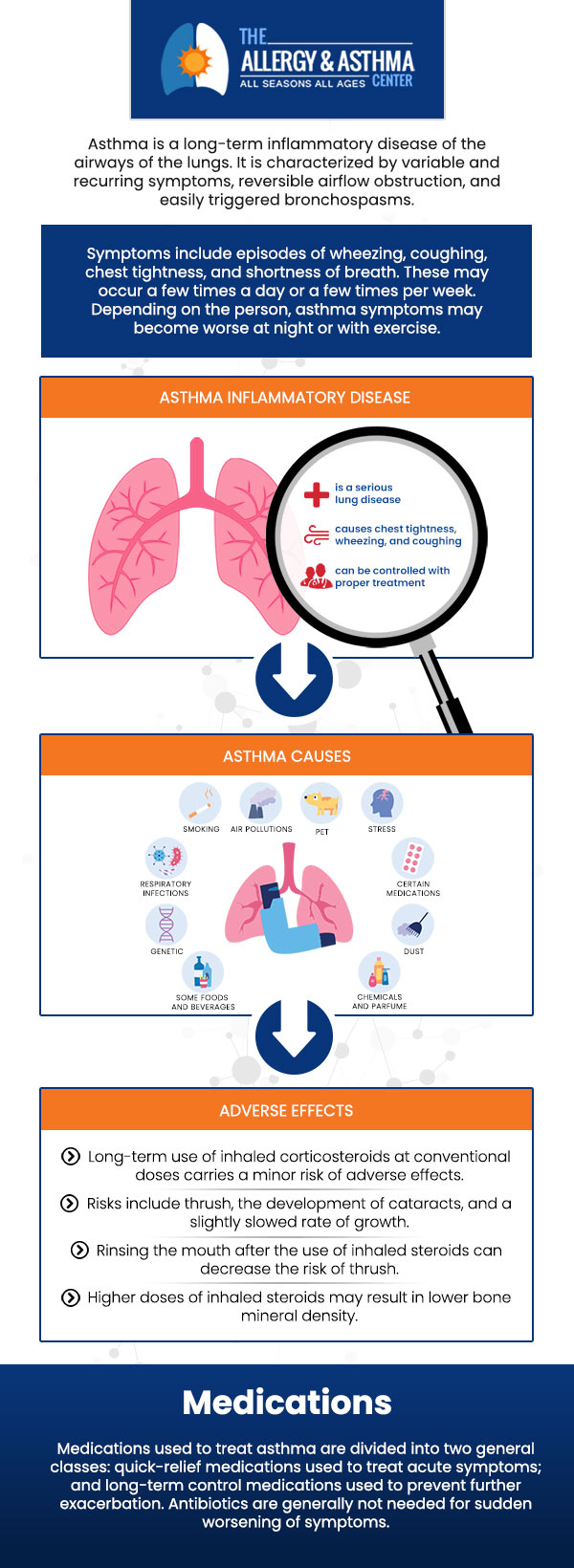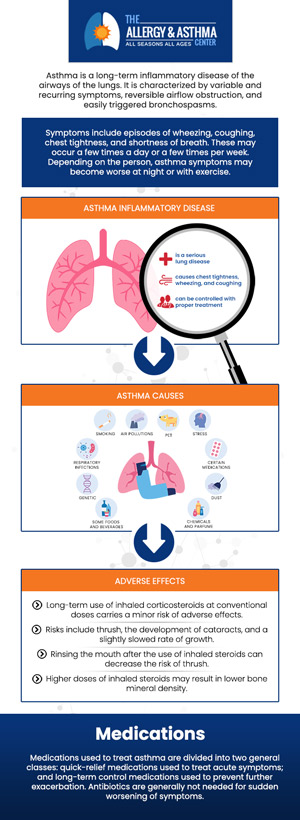How Pet Dander Can Affect Your Asthma?
The Allergy and Asthma Center in Metro Atlanta Area GA offers comprehensive treatment for pet allergies. So talk to us today. For more information, contact us or book an online appointment. We have convenient locations to serve you in Lawrenceville GA, Atlanta GA and Conyers, GA.




Table of Contents:
Can you develop asthma from pet allergies?
How does your pet dander affect the lungs?
How do you neutralize pet dander?
What are the symptoms of pet dander allergies?
Everyone knows that pets make good companions, but those furry friends are often the culprits of asthma and other allergic reactions. When it comes to animals causing asthma it can be referred to as allergic asthma, the symptoms include trouble breathing, coughing, and wheezing. The triggers are feces, saliva, urine, hair, and dander these can linger on household items and can even remain months after a pet has gone. Often this type of asthma is hard to figure out as some people have minor symptoms whereas others have served and can even develop the allergy later in life. It doesn’t take long for an attack to happen, and other symptoms may include rapid heart rate, chest tightness, heavy breathing, and shortness of breath. Cats are known to trigger chronic asthma. It is a good habit to keep track of your symptoms.
Your pet dander lingers in the air for a lot longer than other allergens can and are known to cause coughing, wheezing, sneezing, and shortness of breath. It may also lead to a decline in how well your lung functions, but there are ways to help reduce the risk. You can minimize the contact your pet has in the home, by keeping them out of bedrooms and outside as much as possible. Washing your hands regularly after you are done petting your animal. Turning off central air and getting an indoor air quality sensor might have some benefits.
When it comes to your home if you want people to know that it’s not just your pets that live there, neutralizing dander can help with that; one way is to use baking soda, it’s a great neutralizer and helps get rid of smells. Keep your pet’s things clean, food dishes, leashes, beds, and toys. If you are letting your pets on the couch or bed it is a good idea to clean those areas as well, and vacuum to remove hair and dander, using a vacuum with a HEPA-rated filter will help remove more dander.
Changing your air filters regularly is highly effective to remove the smell and keep dander down.
Brushing your pets at least once a week or daily depending on the length of hair. Along with a strict cleaning regime, keeping your pet in certain areas in the home can minimize dander but also not allowing them near bedding, bathing your pet once a week, keeping the pets off the couch, vacuuming not only the carpet but also the drapes curtains, sofa, and stairs, even changing out the carpet for hardwood or considering a home with more hardwood than carpet. Following these tips can help reduce/eliminate dander in your home improving air quality and reducing asthma triggers.
A pet allergy is a reaction to proteins found in an animal’s skin, urine, or salvia, but often an allergy is triggered by dander (dead flakes of skin) and often mimics that of hay fever symptoms, coughing, runny nose, sneezing, nasal congestion, itchy nose, throat, mouth, itchy, watery eyes, frequent awakening, and facial pressure. If the symptoms are more asthma-like they would look like difficulty breathing, chest tightness or pain, audible wheezing or whistling while exhaling even trouble sleeping because of coughing or wheezing. If cold-like symptoms persist after two weeks, you may have an allergy and it’s best to consult with a doctor. We serve patients from Lawrenceville GA, Atlanta GA, Conyers, GA, Suwanee GA, Duluth GA, Grayson GA, Decatur GA, Brookhaven GA, Lithonia GA, and Covington GA.

Additional Allergy & Asthma Services
▸ Allergy Shots
▸ Allergy Testing
▸ Asthma
▸ Bronchodilators
▸ Drug Allergy
▸ Food Allergy
▸ Insect Allergy
▸ Nasal/Sinus Allergies
▸ Pediatric Allergy
▸ Pediatric Asthma
▸ Skin Allergy
▸ Spring Allergies




